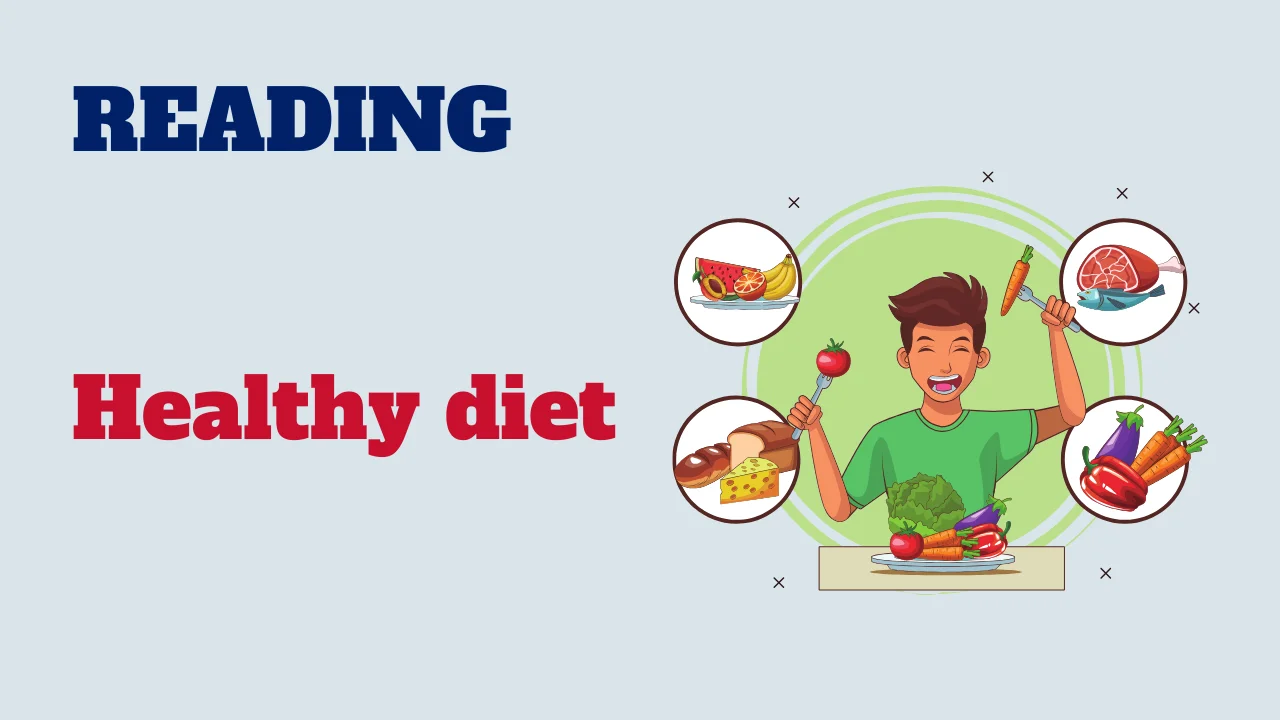Welcome to an investigation of the importance of a healthy diet in maintaining overall health and well-being. In this reading activity, we will discover the essential components of a healthy diet, including nutrients, food groups, and recommended intake guidelines.

By understanding the recommendations provided by organizations like the World Health Organization (WHO), individuals can make informed choices about their dietary habits to promote optimal health.
Text: Healthy diet
A healthy diet is essential for maintaining or improving overall health by providing the body with essential nutrition, including fluids, macronutrients (such as protein), micronutrients (such as vitamins), fiber, and food energy. It emphasizes the consumption of nutrient-rich foods while minimizing the intake of processed and sugary foods and beverages.
A balanced and healthy diet typically includes a variety of fruits, vegetables, and whole grains, while limiting the consumption of ultra-processed foods and sweetened beverages. Both plant-based and animal-based foods can contribute to a healthy diet, although additional sources of certain nutrients, such as vitamin B12, may be necessary for individuals following a vegan diet.
To guide individuals in making healthy dietary choices, various nutrition guides are published by medical and governmental institutions. These guides provide recommendations on the types and quantities of foods that contribute to overall health and well-being. Additionally, nutrition facts labels are mandatory in some countries, enabling consumers to make informed decisions about the foods they consume based on their nutritional content.
The World Health Organization (WHO) offers several recommendations for maintaining a healthy diet, both at the population and individual levels. These recommendations include:
- Maintaining a healthy weight by balancing calorie intake with expenditure.
- Limiting the intake of fats, particularly saturated and trans fats, while preferring unsaturated fats.
- Consuming adequate amounts of fruits, vegetables, legumes, whole grains, and nuts.
- Restricting the consumption of simple sugars to less than 10% of total caloric intake.
- Limiting salt/sodium intake to reduce the risk of cardiovascular disease.
Additionally, the WHO emphasizes the importance of ensuring sufficient intake of vitamins and minerals, avoiding exposure to harmful substances, and replacing saturated fats with healthier alternatives to reduce the risk of chronic diseases like coronary artery disease and diabetes.
Comprehension questions
Congratulations on completing the exploration of the importance of a healthy diet! By understanding the essential components of a balanced diet and the recommendations provided by organizations like the World Health Organization, individuals can make informed choices to promote overall health and well-being. Remember to prioritize the consumption of nutrient-rich foods while minimizing the intake of processed and sugary foods for optimal health. Stay informed and continue to make healthy dietary choices for a healthier lifestyle!



